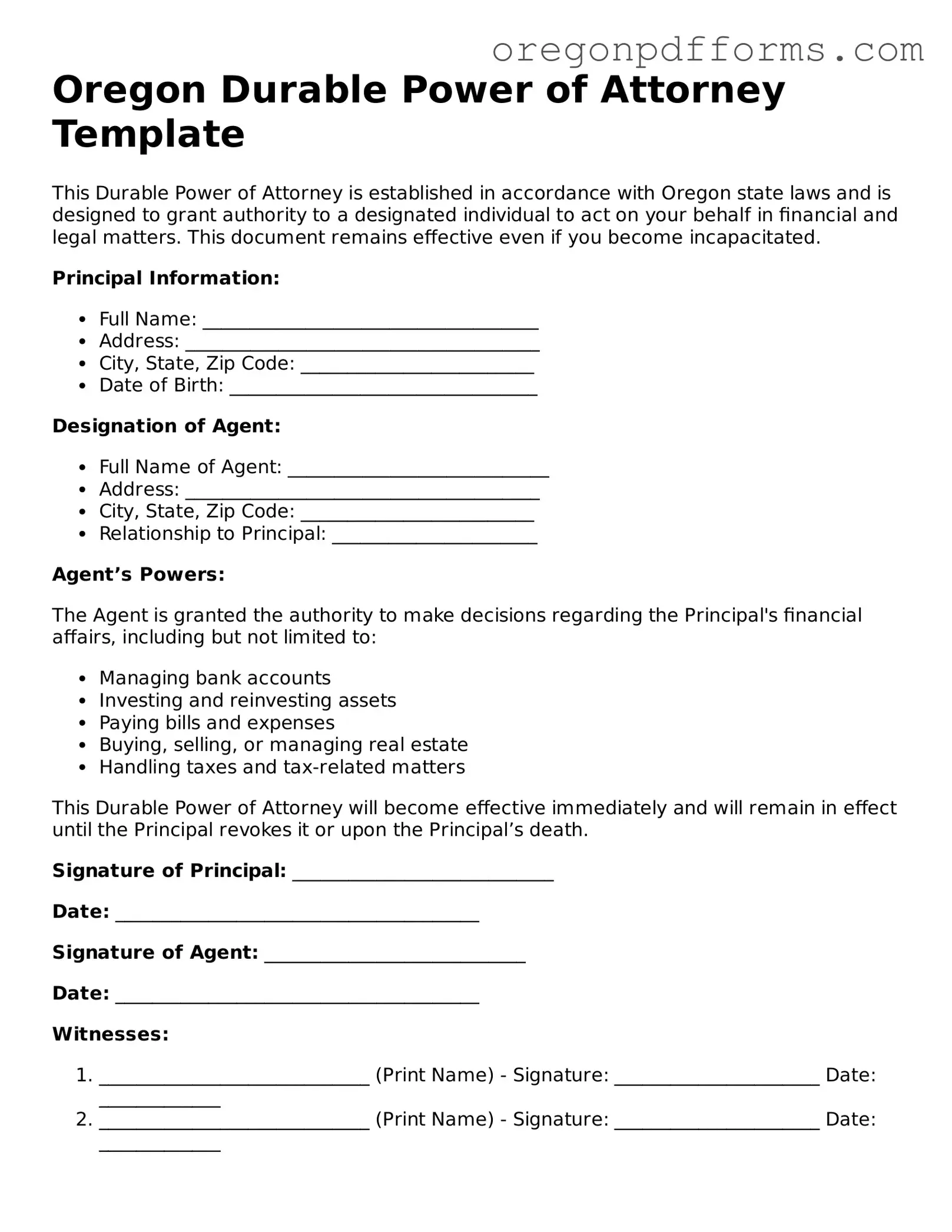Valid Durable Power of Attorney Document for Oregon
A Durable Power of Attorney in Oregon is a legal document that allows an individual, known as the principal, to designate someone else, referred to as the agent, to make financial and legal decisions on their behalf. This form remains effective even if the principal becomes incapacitated, ensuring that their affairs are managed according to their wishes. Understanding the nuances of this document is essential for anyone considering its use in planning for the future.
Open My Durable Power of Attorney

Valid Durable Power of Attorney Document for Oregon
Open My Durable Power of Attorney

Open My Durable Power of Attorney
or
Get PDF
A few steps left to finish this form
Complete Durable Power of Attorney online with easy edits and saving.